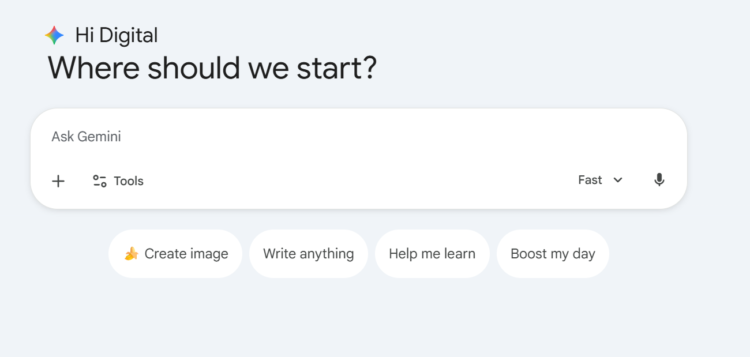
Digimagaz.com – In today’s rapidly advancing technological landscape, artificial intelligence (AI) has permeated nearly every aspect of our lives, including the realm of academic research. AI tools are revolutionizing how scholars and students conduct research, enhancing accuracy, efficiency, and overall effectiveness. From data analytics to natural language processing, these tools streamline the research process, making it more precise and faster. Here, we explore ten cutting-edge AI tools that are reshaping academic research in 2024, empowering researchers to achieve new heights in their scholarly endeavors.
1. Google Scholar: The Academic Search Giant
Google Scholar remains an indispensable resource for academic researchers. This platform provides access to a vast repository of scholarly articles, research papers, and academic literature. Its user-friendly interface and robust search capabilities make it easy for researchers to find up-to-date information. With features like easy-to-identify tags, Google Scholar simplifies the process of locating relevant research materials.
2. Julius: Personalized Research Assistance
Julius is an AI tool specifically designed for modern academic research. It offers personalized assistance in statistical analysis and literature review, making it an invaluable asset for both students and seasoned researchers. Julius excels in data processing, helping users analyze datasets, visualize trends, and structure their research findings effectively. Its advanced capabilities provide a more intuitive experience compared to traditional tools like R or SPSS.
3. Paperguide: Streamlined Literature Collection
Paperguide is a popular AI platform that simplifies the process of collecting, understanding, and producing research papers. Its AI Search feature saves researchers time by automating the search through academic paper repositories. Additionally, Paperguide’s AI Research Assistant helps synthesize collected literature, making it easier for researchers to integrate diverse sources into their work.
4. Elicit: Comprehensive Source Compilation
Elicit functions as a robust search engine for credible academic sources, automating many tedious research tasks. Trusted by industry leaders like Google and NASA, Elicit synthesizes top research papers, allowing researchers to compile and analyze data more efficiently. Its comprehensive approach ensures that researchers have access to high-quality, relevant sources.
5. Research Rabbit: Organized Research Management
Research Rabbit is a vital AI tool for organizing and managing research papers. Its intuitive system of collections facilitates seamless collaboration and sharing among researchers, fostering a more connected academic community. By helping users sift through and categorize vast amounts of research, Research Rabbit enhances the overall research process.
6. Scite: Advanced Citation Analysis
Scite leverages AI to provide detailed analysis of citations, aiding researchers in navigating the extensive body of academic literature. Its ‘smart citation’ feature offers insights into the reliability and context of citations, helping researchers evaluate the credibility of sources and understand the impact of their work.
7. ChatPDF: Accessible and Understandable PDFs
ChatPDF is tailored to make PDF files more accessible and comprehensible for researchers dealing with complex data. With multi-language support, ChatPDF breaks down language barriers in academic research, ensuring that scholars worldwide can access and understand critical research materials.
8. Scopus: Comprehensive Scholarly Database
Scopus offers a vast database and analytical tools that enable researchers to explore scholarly literature across multiple disciplines. It is instrumental in tracking research output and assessing the impact of academic work. Scopus’s comprehensive approach ensures that researchers can stay informed about the latest developments in their fields.
9. SciSpace (Typeset.io): Simplified Publication Process
SciSpace, also known as Typeset.io, simplifies the publication process with its AI-driven tools. From peer review to manuscript submission, SciSpace provides a one-stop solution for researchers aiming to publish their work. Its streamlined approach helps researchers navigate the complexities of academic publishing.
10. Zotero: The Personal Research Assistant
Zotero transforms the collection, organization, and citation of research into a seamless process. This personal research assistant is a boon for academic writers, facilitating the creation of bibliographies and integration with word processors. Zotero’s user-friendly interface and powerful features make it an essential tool for researchers.
Choosing the Right AI Tool
Selecting the ideal AI tool for academic research requires a clear understanding of one’s research objectives and the tool’s functionalities. Factors such as ease of use, documentation, and support systems play a crucial role in ensuring a smooth research process. By carefully evaluating these aspects, researchers can choose the tool that best fits their needs.
Conclusion
AI tools are transforming academic research, offering new avenues for enhancing research methodologies. When used responsibly, these tools can significantly speed up the research process and improve the accuracy and relevance of findings. As AI continues to evolve, researchers are poised to achieve groundbreaking discoveries and innovations, paving the way for a brighter future in academia.





